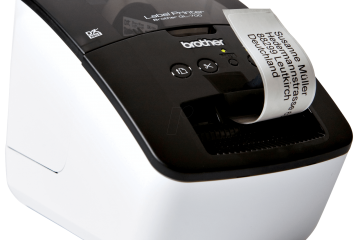Best Laptops for Engineering Science in 2020

It’s not different if you are electrical, mechanical, computer, civil, software, chemical, aeronautical or even aerospace engineering, you’re probably thinking that most laptops are not capable of running all the different software engineers encounter during their studies. Every laptop had three major noticeable things: appearance, software, and hardware.
While software and hardware are responsible for the performance, appearance is related to the user aesthetic sense. Any laptops for engineering graduate students should have an excellent performance to get outstanding output.
Laptops for Engineering Science
Acer Predator Helios 300
This is an ideal laptop with a typical gaming finish by Acer. Sharp curves and slopes, with red-colored plastic added here and there, give it a refreshing look. This is the latest model of the Predator series and it does not disappoint in terms of power. It’s armed with Nvidia’s 1660 GeForce graphics card, a 144Hz IPS panel and the latest ninth generation i7 processor of intel. It has desktop-like specs at a much cheaper price. This is a true gaming display capable of giving you 70-80 frames per second even in the heaviest of games. Its 16 GB RAM and 256 GB SSD card make it a fast and top choice for engineering students. Although its storage is small it can easily expand according to the requirements.
- Processor 7thGeneration Intel Core i7-7700HQ
- Memory 16 GB DDR4
- Storage 256 GB SSD
- Display size 15.6ʺ Full HD LCD IPS display
- Resolution 1920 × 1080 pixels
- OS Windows 10
- Battery 2 Lithium Metal batteries up to 7 hours
- Thickness 1.1ʺ
- Weight 5.95
- Dimensions 15.3 × 10.45 × 1.1 inches
PROS
- High performance
- Comfortable keyboard
- Fast SSD storage
CONS
- Substandard cooling system
- Poor quality sound system
Microsoft Surface Book
The Microsoft Surface Book is the best choice for a 2-in-1 machine with a highly functional, lightweight design.
The laptop is small enough to carry from class to class while still offering an NVIDIA GeForce GTX 965M graphics card with 2GB of dedicated memory and It is configured with a 2.6GHz Core i7 processor with 16GB of RAM for premium software output. The machine works with a 512GB hard drive and provides ample storage space for thousands of AutoCAD files and 16 hours of battery.
- Processor Intel Core i7-2600 2.6 GHz
- Memory 16 GB DDR3
- Storage 512 GB flash memory solid state
- Display size 13.5ʺ Full HD LED display
- OS Windows 10
- Battery 2 Lithium Polymer batteries up to 16 hours
- Thickness 0.9ʺ
- Weight 3.63
- Dimensions 12.3 × 9.1 × 0.9 inches
PROS
- Exceptionally good battery life
- Portable
- Responsive touch screen
CONS
- Non-expandable memory
- USB-C without Thunderbolt
Read Also: How Technology is Changing the Education Sector?
Laptops for Computer Science

It is clear that a student pursuing a major or a degree in Computer Science just cannot get by without a good laptop. Although the primary criteria for most students would be coding, learning programming languages, concepts, submitting assignments on time, making projects, etc. If you are a student pursuing majors in computer science, or an IT professional looking for a better replacement to cater all your programming needs, a good worthy laptop will be your basic demand. Technology keeps on upgrading and thus it’s better to stay in touch with the latest market.
They say that it is not hard to find a good laptop but an appropriate one. For someone related to the field of computers, what you might be looking for in a laptop is a powerful processor, good RAM, and Storage section and an exceptional display.
HP ENVY 13”
HP Envy 13 is powered by a 1.8 GHz core i7-8565U Intel processor, 16 GB SD RAM, and 512 GB SSD to make it super performable during heavy activity and offer even speed.
It can take care of all your multitasking, coding, debugging, and meanwhile running your favorite game or a movie in the background all at once. It will run any of your software applications without a bit of a hassle NVIDIA GeForce MX250 Graphic card makes this laptop outperform all your tasks regarding computing and programming.
- CPU:8 GHz Intel Core i7-8565U
- RAM:16GB SDRAM
- Storage:512GB SSD
- GPU:NVIDIA GeForce MX250 Graphics
- Display:3-Inch 4K Touchscreen
PROS
- Light weight
- Performance
- High resolution
- Fingerprint reader
CONS
- 4k reduces battery life
ASUS TUF FX505DT Gaming Laptop
The FX505DT is one of the more powerful AMD-powered laptops out there. Powered by the AMD Rhyzen 7 3750H integrated with GeForce GTX 1660 Ti graphics card and 16GB DDR4 RAM.
Although the RAM on board is 16GB, it’s expandable up to 32GB, but it goes without saying that 16GB DDR4 RAM is more than sufficient to carry out the most demanding tasks and tools like PyCharm and IntelliJ IDEA run like breeze even while developing serious and high-processing applications, the 512GB PCIe NVMe SSD storage just aids the process further.
- Processor:4 GHz AMD Ryzen 7 R7-3750H
- RAM:16GB DDR4
- Storage:256GB PCIe SSD + 1TB HDD
- GPU:NVIDIA GeForce GTX 1660Ti
- Display: 6” 120Hz FHD IPS-Type
PROS
- Rich specs
- Powerful AMD processor
- Good integrated GPU
CONS
- Mediocre battery life
- Non-premium build
Conclusion
Laptops are of great importance in science, and without them, no serious research can be imagined. By reading this article I hope you have found the right laptops for engineering or at least learned how to choose the right one.











Good to see this post, I am happy to read this. Informative post..